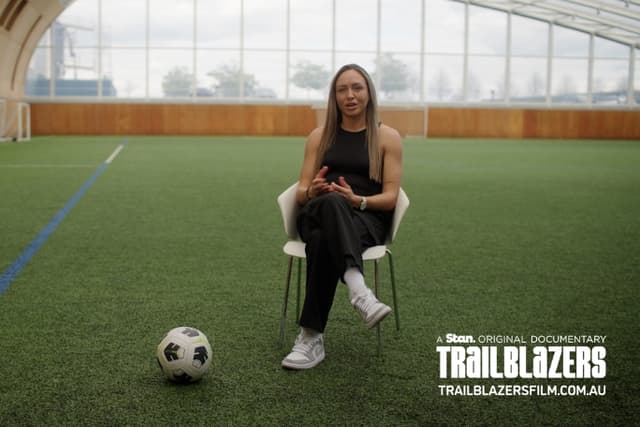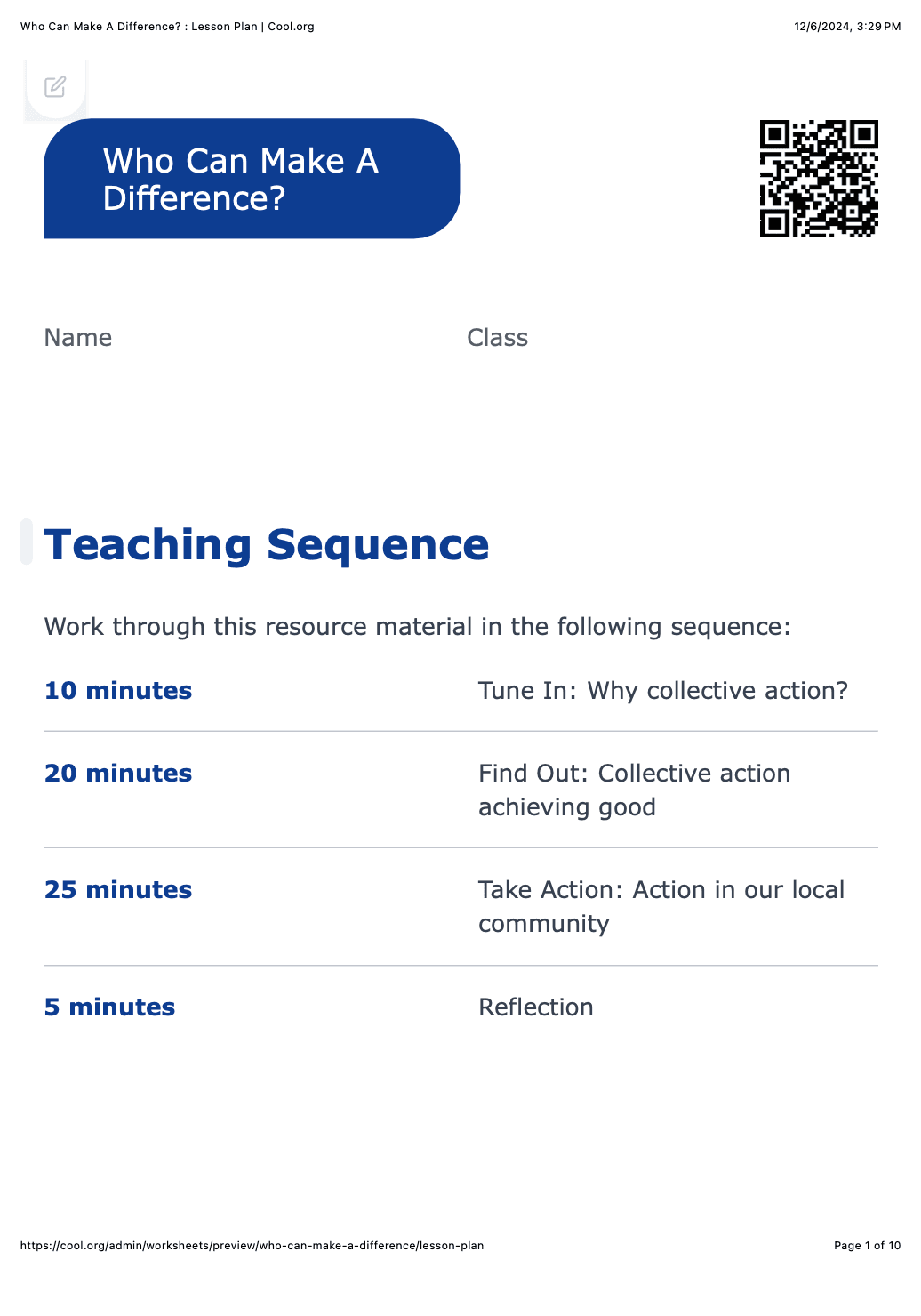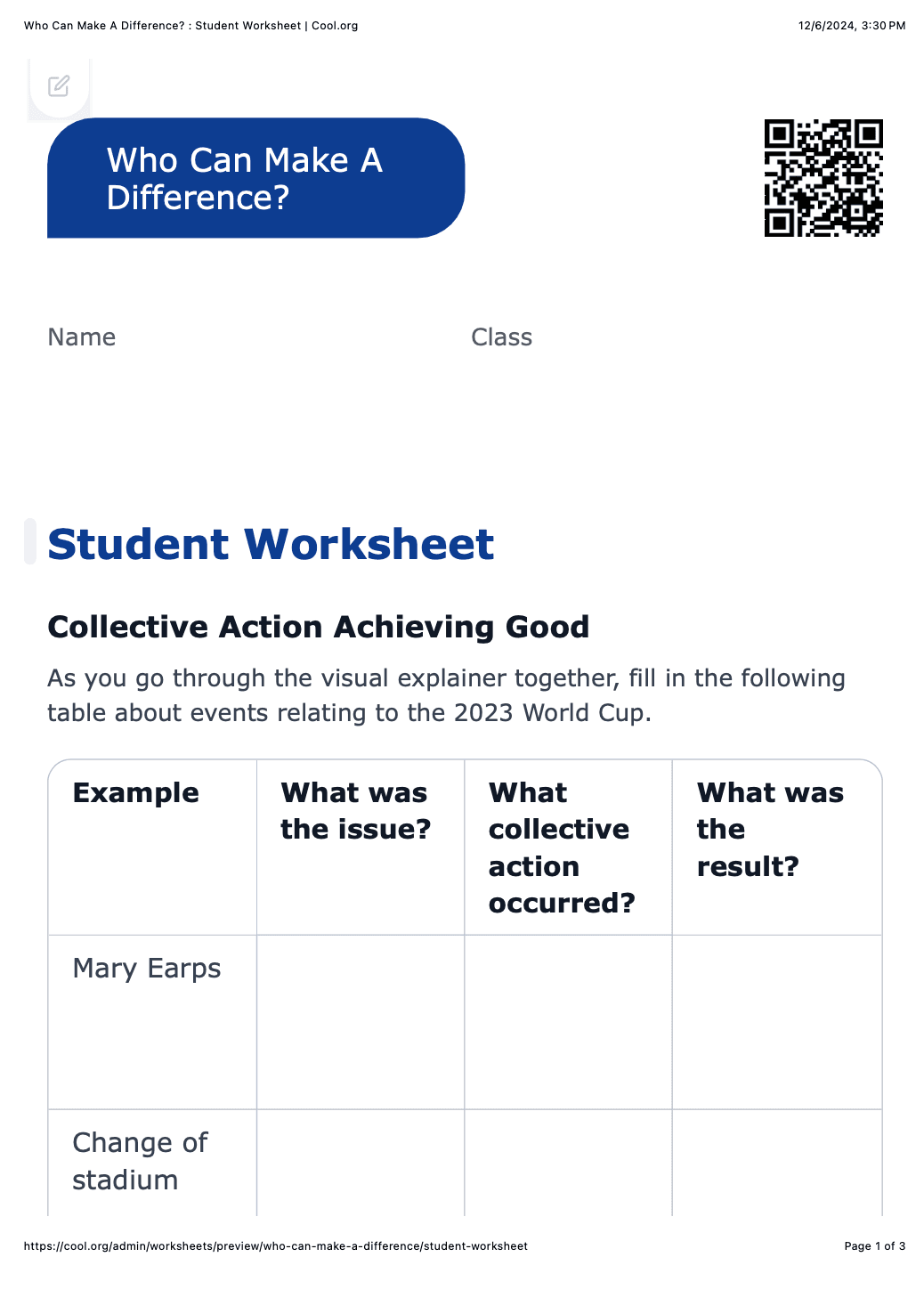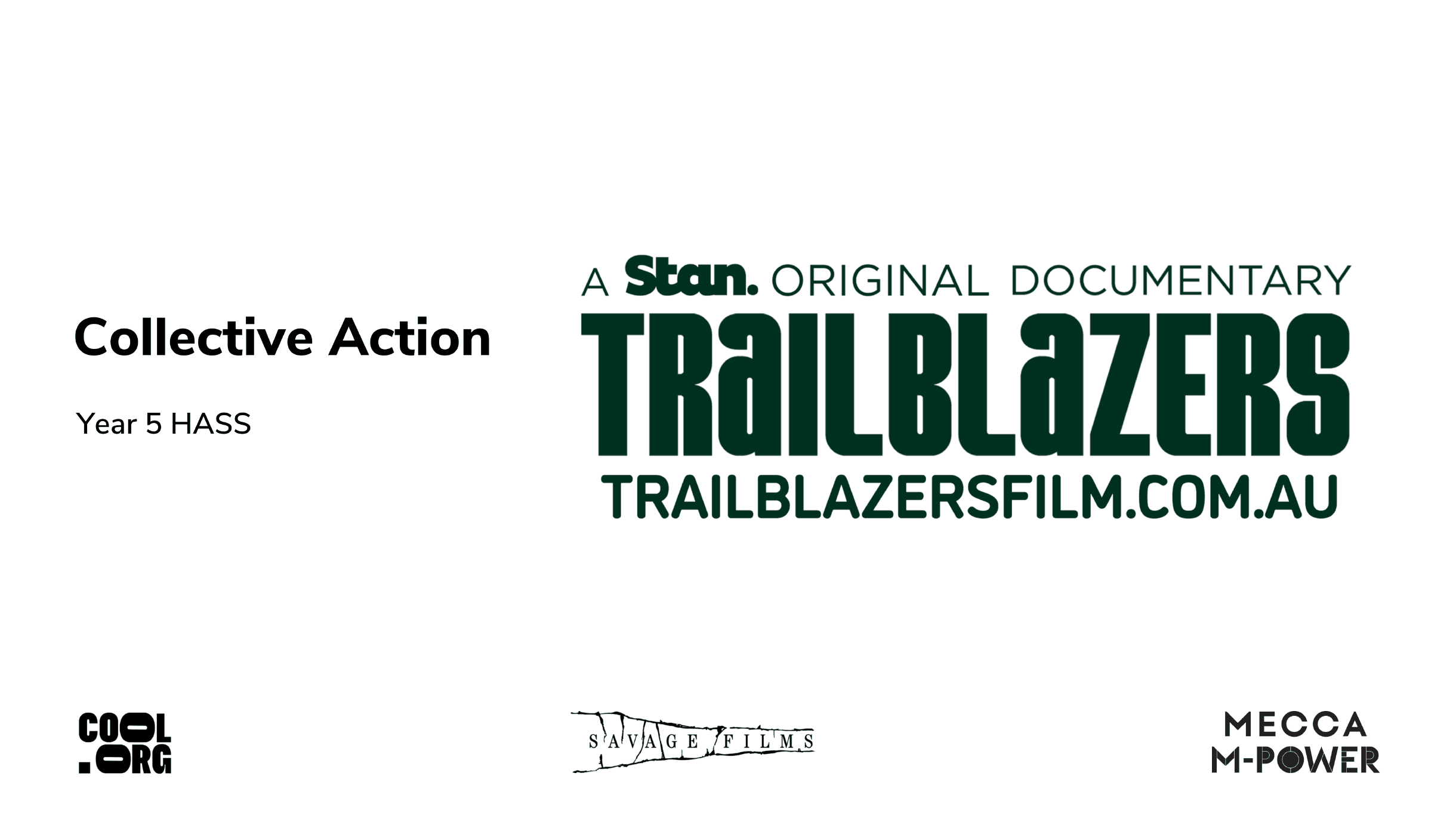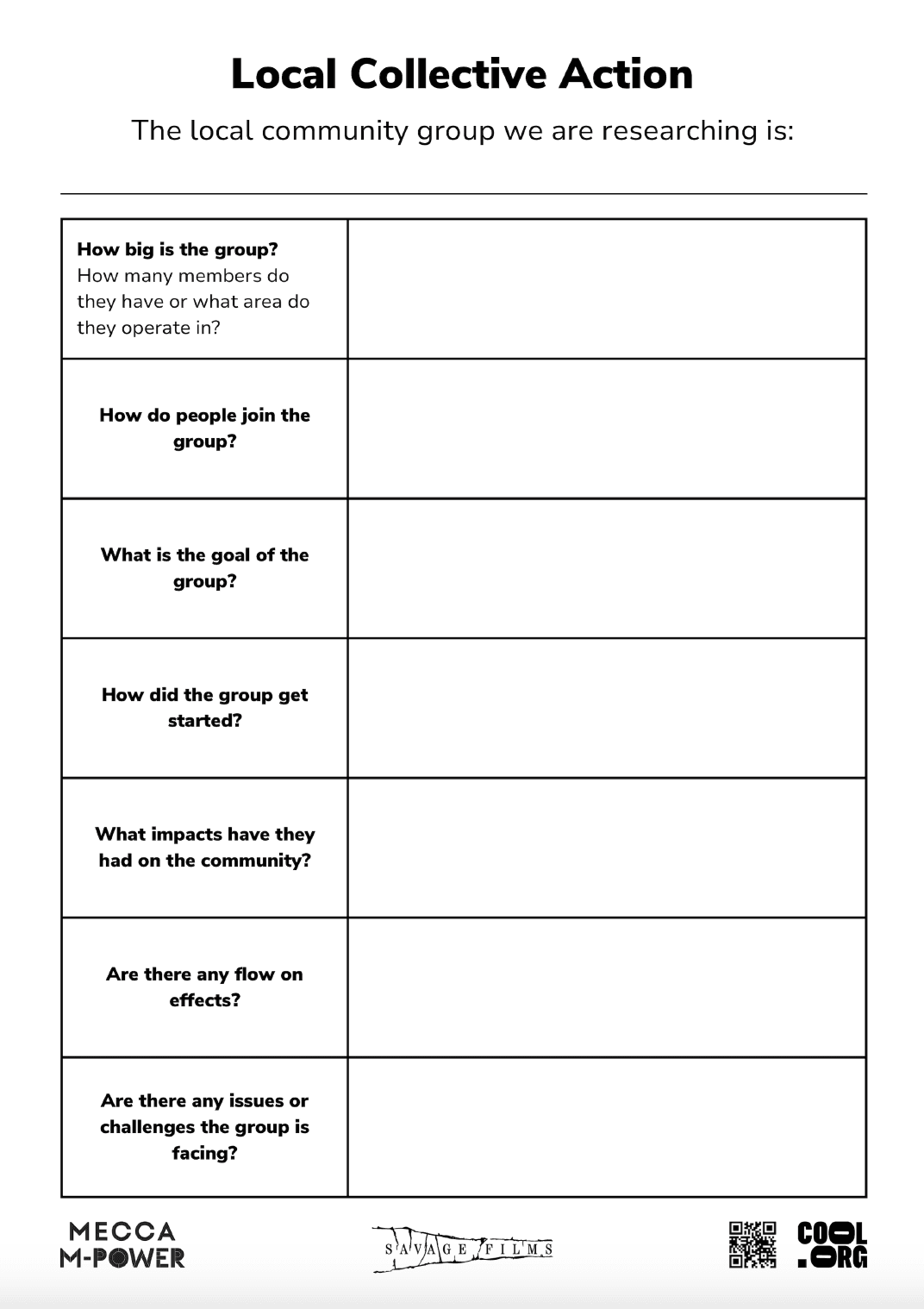Learning intentions:
Students will...
- explore examples of collective action and people working together to achieve a goal.
Success criteria:
Students can...
- explain impacts of collective action
- discuss an example of collective action in their local community.
